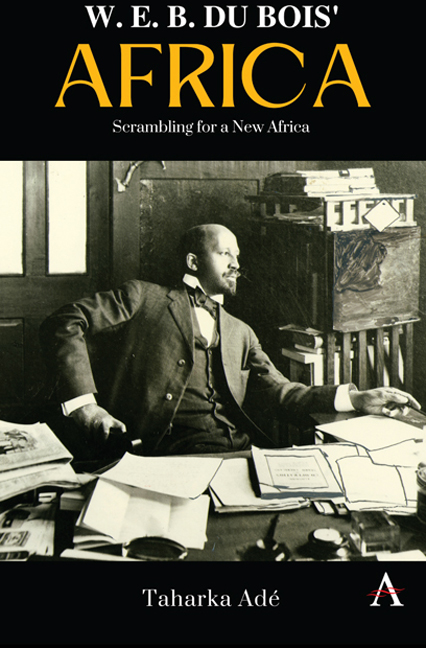2 - Du Bois on African History and Classical Antecedents
Published online by Cambridge University Press: 28 February 2024
Summary
Du Bois and Africa
The fields of social science and humanities in the Western world developed with inherent biases about the hierarchical nature of civilizations, cultures, languages and customs. Du Bois, though he was trained by the West, appears to have some appreciation of this fact as he writes The World and Africa. However, there are a number of things that Africologists recognize today as Agency Reduction Formations that Du Bois did not have the theoretical foundation necessary to pinpoint as such. Nevertheless, his insight on the reduction of African agency was still profound. Recall, he once stated of an increasingly colonized Africa, “By the end of the nineteenth century the degradation of Africa was as complete as organized human means could make it.”
It is apparent that Du Bois understood that Europe, through power and force, had positioned itself as the superior culture between itself and Africa. Du Bois would state, “A system at first conscious and then unconscious of lying about history and distorting it to the disadvantage of the Negroids became so widespread that the history of Africa ceased to be taught,” and that “every effort was made in archaeology, history, and biography, in biology, psychology, and sociology, to prove the all but universal assumption that the color line had a scientific basis.” This “color line” would be famously voiced by Du Bois as the primary issue of the twentieth century. Many attribute the notion of the “color line” to arguments for social justice measures intended to bring about equal treatment and socioeconomic conditions among those of African and European descent.
However, Du Bois may have meant something a bit more than social justice. I argue that in this text, The World and Africa, Du Bois, despite his aforementioned ideological shortcomings, is actually advocating for cultural justice. Du Bois argues, and I agree, that the European world has distorted the facts of history in order to misattribute upon itself all notions of human technological advancement and intellectual heritage. As Du Bois put it, “Without the winking of an eye, printing, gunpowder, the smelting of iron, the beginnings of social organization, not to mention political life and democracy, were attributed exclusively to the white race and to Nordic Europe.”
This eurocentric masquerade has done its job at standardizing ways of knowing under a type of false universalism.
- Type
- Chapter
- Information
- W. E. B. Du Bois' AfricaScrambling for a New Africa, pp. 47 - 74Publisher: Anthem PressPrint publication year: 2023



